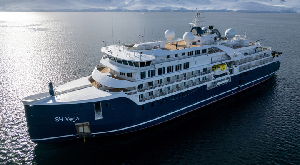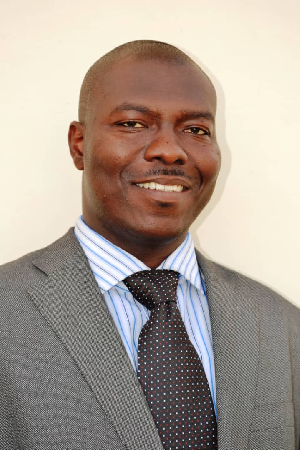- Home - News
- TWI News | TV
- Polls
- Year In Review
- News Archive
- Crime & Punishment
- Politics
- Regional
- Editorial
- Health
- Ghanaians Abroad
- Tabloid
- Africa
- Religion
- Election 2020
- Coronavirus
- News Videos | TV
- Photo Archives
- News Headlines
- Press Release
General News of Thursday, 23 April 2009
Source: GNA
Govt initiates talks with devt partners on SADA framework
Accra, April 23, GNA - Government on Thursday started talks with development partners on how they could bring their expertise to bear on the proposed Savannah Accelerated Development Authority (SADA), a growth agenda that seeks to address policy failures with regard to the development of the three northern regions.
SADA is an ambitious development agenda, which has at its centrepiece the need to reduce poverty in the northern parts of Ghana, including the savannah belt of the Volta and Brong Ahafo Regions from 80 to 20 per cent of the population within 20 years.
Among the broad concerns of the Authority is the creation of a competitive northern economic zone that would highlight the enormous agricultural potential of the selected areas.
The Thursday meeting was part of on-going consultations to roll over the current 25 million Ghana cedis Northern Development Fund (NDF) into a more embracing SADA with an addition 200 million Ghana cedis portfolio over the next four years.
Briefing the media after a closed door session that included diplomats, officials of international financial institutions, and development agencies, Dr Sulley Gariba, a Coordinator of the project, described the outcome as positive, as it supported the broad policy outline crafted by the government which would later be submitted to Parliament.
He said the meeting reached a consensus that the proposed authority must be the fulcrum in coordinating all development activities in the selected areas to avoid duplication of efforts for the needed impact of the project to be felt.
He said such an approach would help to systematically consolidate efforts being initiated by the state and civil society group in a scattered fashion and as a result have failed in achieving the expected outcome.
Dr Gariba said the development partners also agreed with government that a strand of SADA should focus on galvanizing resources to modernize the practice of agriculture in the selected areas.
Mr Alhassan Azong, a Minister of State at the Presidency, told GNA that government would put in place a compact institutional arrangement to forestall duplication of poverty related strategies being pursued by various state agencies and international development partners. The move, he explained, was to ensure harmonization of projects so as to make the needed impact in the shortest possible time rather than dissipating resources thinly in an uncoordinated fashion.
Dr Charles Jebuni, Head of Technical Team of the SADA implementation committee, said SADA would help to correct past policy failures in the northern parts of the country and also position the selected areas as economic zones that could serve as alternate to some national projects.
He said the energy development aspect of SADA could be focused on promoting solar as alternative to the national grid given the amount of sunshine in the area.
In addition, he said, SADA would also be used to promote economic growth in the mining, agriculture and tourism sectors to create assets for the poor.
A Deputy Minister of Finance, Mr Fiifi Kwetey, said government would increase its budgetary provision on poverty related programmes from 1.5 billion Ghana cedis to 1.8 billion Ghana cedis this year. 23 April 09










